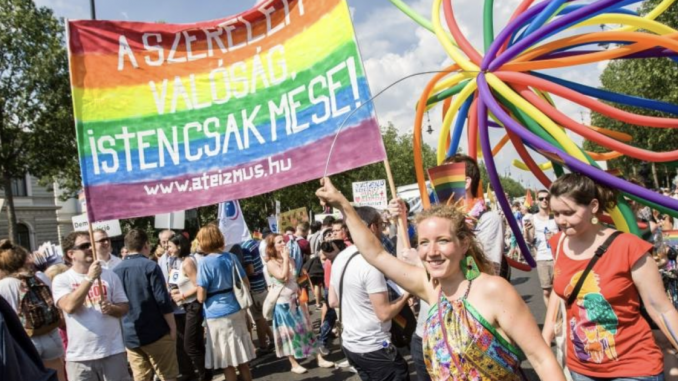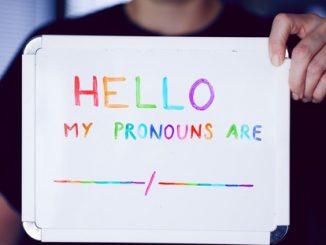
Published November 11, 2025
The IOC is under increasing pressure to resolve longstanding debates about fairness, biological sex, gender identity and inclusion in women’s events at the Olympics. Up until now, its policy has largely left eligibility rules for transgender women (and those with differences of sexual development, or DSD) to individual sports federations rather than applying one universal standard.
Key past cases:
-
Transgender athlete Laurel Hubbard (NZ) competed in women’s weightlifting at the Tokyo 2020 Olympics as an openly transgender woman.
-
The track & field case of Caster Semenya (South Africa), an intersex woman with a DSD, has been the subject of major rules on female classification and testosterone levels for female athletes.
These cases serve as context for current scrutiny.
What the recent reports say
Reported policy shift
According to multiple media outlets, the IOC is preparing to implement a blanket ban on transgender women (and potentially athletes with DSD who began male puberty) from competing in female categories across all sports at the Olympics — possibly as early as the 2026 Winter Games, and certainly by the 2028 Los Angeles Games.
From the article on The Gateway Pundit:
“The IOC is reportedly preparing to ban all transgender women athletes from participating in the women’s category of Olympic competition.”
It further states:
“…unambiguous scientific evidence that individuals born male retain significant physical advantages, even after hormonal transition.”
Who is included in the discussion
Key groups under scrutiny:
-
Transgender women: Assigned male at birth, transition to female, and previously may have competed under rules (e.g., testosterone thresholds).
-
DSD (Differences of Sexual Development) athletes: Individuals born female or registered female but possessing male chromosomes or elevated testosterone/hormonal profiles, sometimes raised as female. The reports suggest that older allowances for DSD athletes are being revisited.
Why this is happening now
-
The new IOC President, Kirsty Coventry (Zimbabwe), is said to favour a stronger stance on protecting the “female category” and commissioned a scientific review.
-
A scientific‐medical presentation by the IOC’s Director of Health, Medicine & Science (Jane Thornton) reportedly delivered to members said that physiological advantages remain for those born male despite hormonal transition.
-
Some federations (e.g., athletics, boxing) have already tightened rules, creating momentum for a unified policy.
What rules may change
-
Rather than sport‐by‐sport rules (e.g., testosterone below X nMol/L), the IOC may adopt one “female competition” definition: likely restricting participation to those assigned female at birth and/or excluding those who have gone through male puberty.
-
Implementation timing: Some sources say the new rule may not come into effect before the 2026 Winter Olympics, but could be ready in time for 2028.
Spotlight: Imane Khelif
One specific high-profile case that has shaped debate.
Her story
-
Khelif, an Algerian boxer, won gold in the women’s ~66 kg at the Paris 2024 Olympics.
-
Prior to that, she was disqualified at the 2023 Women’s World Championships by the former governing body (International Boxing Association, IBA) for failing eligibility tests. The IBA claimed “Y chromosome” findings and male androgenization though details remain sealed.
-
The IOC cleared her to compete in Paris, stating she was “born female, was registered female, lived her life as a female, boxed as a female, has a female passport.”
-
After her win, she faced intense public scrutiny and harassment with accusations and rumors; she filed a complaint for “moral harassment” in August 2024 over online posts.
Her relevance to policy
Khelif’s case is often cited in the debate as an example of perceived “unfair advantage” or at least a gray zone that has triggered calls for stricter rules. The upcoming policy review is seen as partly a response to this type of controversy.
She is also referenced in reports that the IOC is deliberating whether the ban might also encompass athletes like her (DSD athletes) even though she is not transgender.

A ban on transgender women in Olympic sports is edging closer and is expected to be in place for the LA Games in 2028 (pictured – transgender athlete Laurel Hubbard of New Zealand)

IOC President Kirsty Coventry has expressed her desire to ‘protect the female category’
 Implications: What This Move Means for Sports and Society
Implications: What This Move Means for Sports and Society
1. A Victory for Fairness in Women’s Sports
For years, female athletes have spoken out against being forced to compete against biological males who transitioned later in life. The IOC’s expected decision represents what many see as the long-overdue correction—a reaffirmation that female sports exist to protect fair play for women, not to serve as a social experiment.
This is more than policy; it’s a return to the principle that women deserve their own competitive space, built on biology, not ideology.
2. A Global Recalibration of Gender Policy in Sports
Once the IOC formalizes its stance, the ripple effect will be immense. National Olympic committees, school leagues, and collegiate systems around the world will likely follow. Expect a wave of revisions to eligibility rules and the removal of testosterone-based loopholes that have caused years of confusion.
This could become the new global standard: “female category = biological female.”
3. Legal and Political Fallout
Critics and activist groups will almost certainly challenge the move, labeling it as “discriminatory.” Court filings and lobbying campaigns are expected, especially in Western nations where gender identity laws are deeply entrenched.
However, the IOC’s reliance on scientific evidence of biological advantage may give it a strong legal footing. If courts uphold this standard, it will mark a decisive shift—law and science aligning over ideology.
4. The End of Ambiguity for Female Athletes
Female Olympians have spent years training under uncertain rules—unsure whether they’d face competitors with male physiology. With a universal policy, that uncertainty could end. Expect morale among women’s competitors to rise and public confidence in women’s sport to strengthen.
Sponsors, too, are likely to respond positively to renewed credibility in competition integrity.
5. New Questions for Inclusion Advocates
While the move protects fairness, it also forces a tough question: what becomes of transgender and DSD athletes now excluded from women’s divisions? Some propose an “open category,” but others warn it could be stigmatizing or unworkable.
Still, the IOC’s decision might push the conversation toward separate but fair competition models—acknowledging gender identity without compromising female categories.
6. A Cultural Shift Beyond the Field
The Olympics are a mirror of global values. This policy change would signal that even the world’s most inclusive sports body now recognizes the limits of ideology in the face of biological reality.
Expect debates to spread beyond sports—into education, health, and politics—where the balance between rights and reality is being tested worldwide.
7. Long-Term Legacy
If implemented smoothly, the IOC’s policy could mark a historical moment akin to Title IX’s legacy in the U.S.—a definitive boundary protecting women’s sport. The result could be renewed participation, restored credibility, and a model for fair competition across generations.
 Overall Takeaway: Restoring Balance to the World’s Greatest Stage
Overall Takeaway: Restoring Balance to the World’s Greatest Stage
The Olympic Games have long stood as the pinnacle of human achievement — where discipline, talent, and truth in competition unite the world. But in recent years, that ideal has been clouded by confusion over gender identity and fairness. The IOC’s anticipated decision to exclude transgender and DSD athletes from female categories signals a historic turning point: a return to clarity, science, and integrity.
This isn’t a rejection of inclusion — it’s a reaffirmation of fairness. Women’s sports were created to give female athletes equal ground to compete, not to erase the biological distinctions that make the categories meaningful. Protecting that foundation is not intolerance; it’s justice.
The message is clear: equality in sports means honoring biological reality, not bending it. By standing firm, the IOC reminds the world that compassion and common sense can coexist — and that fairness, once again, takes the podium.
SOURCES: THE GATEWAY PUNDIT – REPORT: Olympic Committee Moves to BAN ALL Transgender Athletes from Women’s Events — Cites “Scientific Evidence of Advantages to Being Born Male”
DAILYMAIL ONLINE – Olympics set to ban ALL transgender athletes for LA 2028 – but row rages over whether those with Imane Khelif’s reported condition will be able to compete
THE NEW YORK POST – IOC to ban transgender women from all female Olympic events: report





Be the first to comment